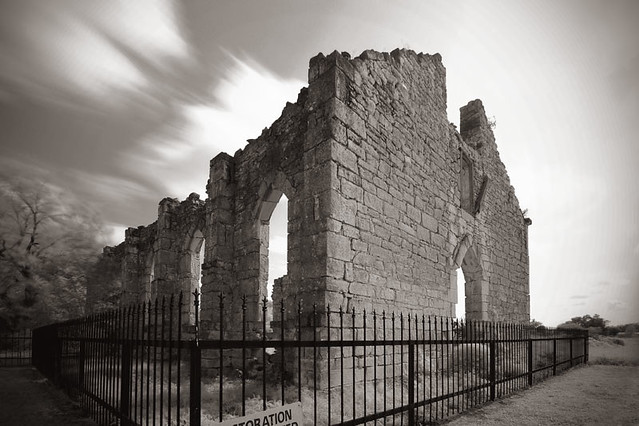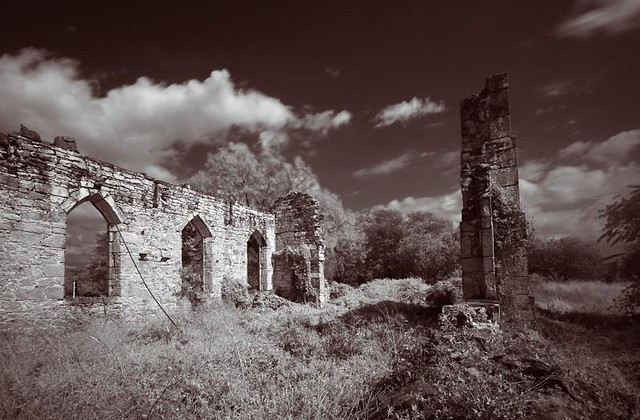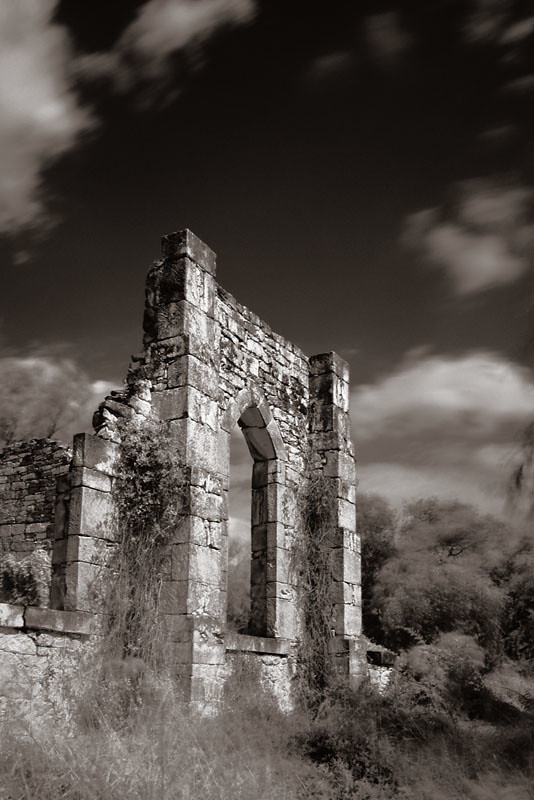
There's a certain romance to ruins. Maybe they give a place a sense of history--the U.S. is a relatively young country, so we don't have anything comparable to the Roman Coliseum or Greek amphitheaters or Mayan temples. Filling that role for us are old Spanish missions and crumbling churches, which, once you get down to it, have a unique feral beauty all their own.

St. Dominic is certainly a fine example of a beautiful ruin. I occasionally assist The Wife with photography, and a little side obsession of mine is infrared photography--shooting in a way that blocks visible light to reveal the unseen world illuminated by the near-infrared part of the spectrum. It's been a while since I photographed anything in infrared, but I knew I wanted to try here, since infrared light can bring out details hidden otherwise. Since my camera isn't converted, I had to set up the tripod, compose and focus the image then thread the visible light-blocking filter onto the end on the lens. This takes up a lot more time than you'd imagine. Once all of that is complete, I remotely trigger the camera for a pre-set exposure lasting anywhere from 5 to 20 seconds. Because of the blocking filter, exposures must be very long to ensure an image is formed. Compounding the challenge was the wind--it was gusty like you wouldn't believe. That shakes the camera, which blurs the long-exposure image. At the end of the day, I had far too many wasted shots. But I had a few keepers, too.

Unlike shooting with infrared film (which is challenging in its own right) most of the work on the image takes place after the fact with digital. Unprocessed infrared images are muddy, reddish things that are pretty ugly. I spent about an hour in Photoshop for each of the above, trying different things to bring out the most in each shot--experimenting is part of the fun! The top and bottom shots are different variations on a duotone process, while the middle image is a tritone process--which is a fancy way of saying multiple colors are used to create a warmer, richer black-and-white image than could be achieved using only black and white.
I'd forgotten how much I love infrared. I'm going to make it a point to make a few more photo excursions while the autumn light is still good.
No comments:
Post a Comment